Search
Did you mean: Delos?
Search Results
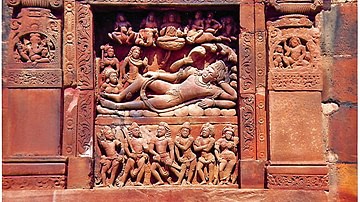
Definition
Vishnu
Vishnu is one of the most important gods in the Hindu pantheon. He is considered a member of the holy trinity (trimurti) of Hinduism with Brahma and Shiva. Vishnu is the Preserver and guardian of men, he protects the order of things (dharma...
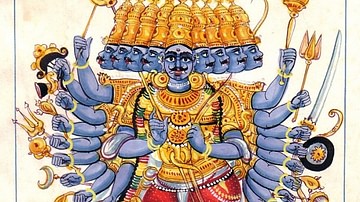
Definition
Ravana
Ravana is the mythical multi-headed demon-king of Lanka in Hindu mythology. With ten heads and twenty arms, Ravana could change into any form he wished. Representing the very essence of evil, he famously fought and ultimately lost a series...

Definition
Ahriman
Ahriman is the evil spirit in Early Iranian Religion, Zoroastrianism, and Zorvanism, Lord of Darkness and Chaos, and the source of human confusion, disappointment, and strife. He is also known as Angra Mainyu (evil spirit or dark spirit...
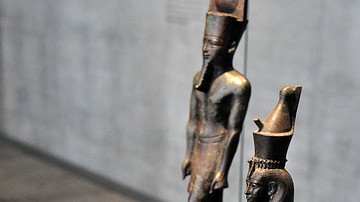
Article
Egyptian Gods - The Complete List
The gods and goddesses of Ancient Egypt were an integral part of the people's everyday lives for over 3,000 years. There were over 2,000 deities in the Egyptian pantheon, many whose names are well known - Isis, Osiris, Horus, Amun, Ra, Hathor...
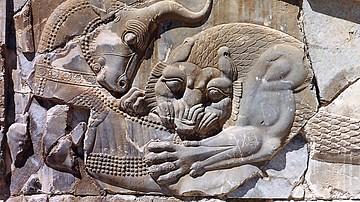
Article
Twelve Ancient Persian Mythological Creatures
The mythology of any civilization reflects its core values, greatest fears, and highest hopes and so it is with the mythology of ancient Persia. The great heroes like Karsasp, Thraetaona, and Rustum express particularly Persian values but...
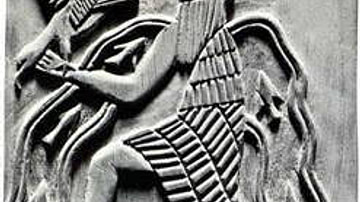
Definition
Enki
Enki (also known as Ea, Enkig, Nudimmud, Ninsiku, Nissiku) was the Sumerian god of wisdom, fresh water, intelligence, trickery and mischief, crafts, magic, exorcism, healing, creation, virility, fertility, and art. Iconography depicts him...
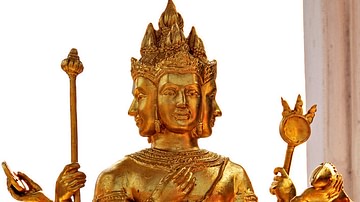
Definition
Brahma
Brahma is the Hindu creator god. He is also known as the Grandfather and as a later equivalent of Prajapati, the primeval first god. In early Hindu sources such as the Mahabharata, Brahma is supreme in the triad of great Hindu gods which...

Article
The Mesopotamian Pantheon
The gods of the Mesopotamian region were not uniform in name, power, provenance or status in the hierarchy. Mesopotamian culture varied from region to region and, because of this, Marduk should not be regarded as King of the Gods in the same...
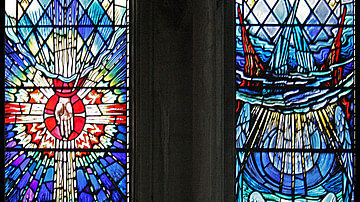
Article
Monotheism in the Ancient World
Monotheism is simply defined as the belief in one god and is usually positioned as the polar opposite of polytheism, the belief in many gods. However, the word monotheism is a relatively modern one that was coined in the mid-17th century...
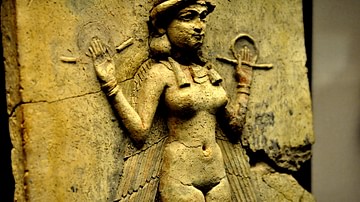
Article
The Queen of the Night
The Queen of the Night (also known as the `Burney Relief') is a high relief terracotta plaque of baked clay, measuring 19.4 inches (49.5 cm) high, 14.5 inches (37 cm) wide, with a thickness of 1.8 inches (4.8 cm) depicting a naked winged...